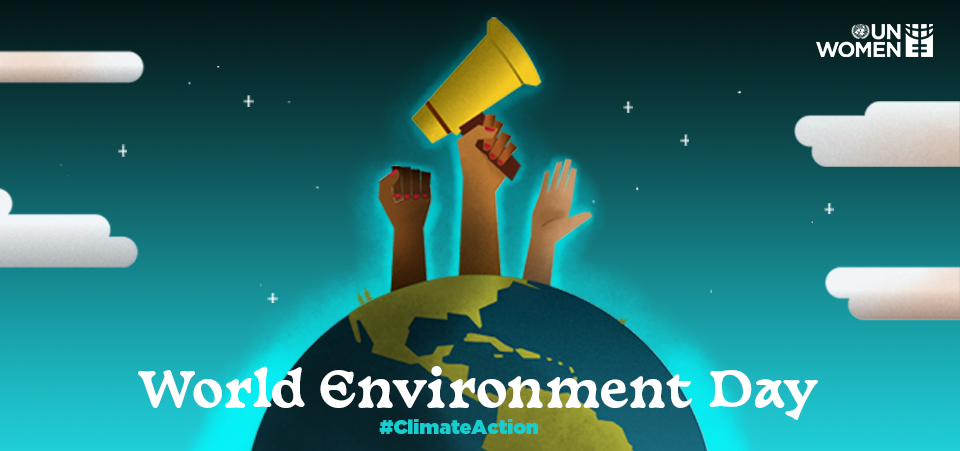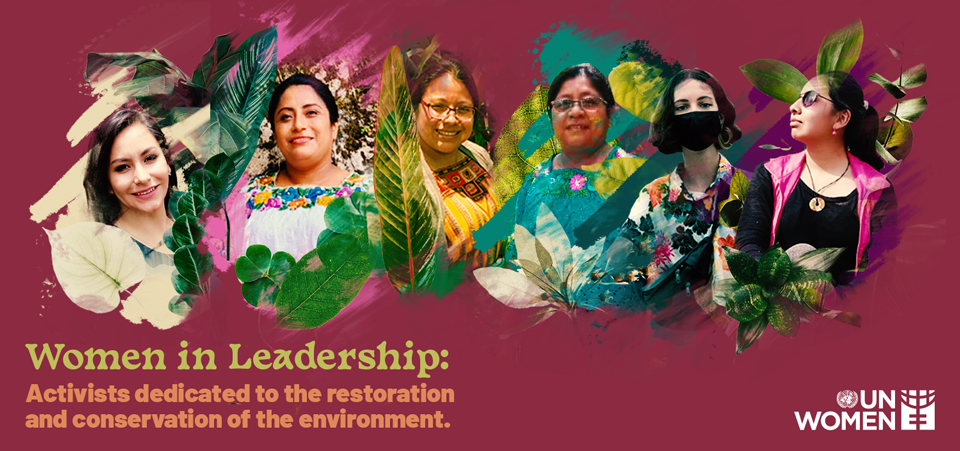World Environment Day
Date:

Climate change is related, among other factors, to efforts to ensure the sustainability of development. This global phenomenon has social, environmental and economic impacts that have a greater impact on people in vulnerable situations, particularly women and girls who, due to the multiple dimensions and implications of gender inequality, generally have more restricted access to land ownership and less control over other resources, as well as greater limitations in accessing negotiation and decision-making spaces.
This implies greater challenges related, for example, to the food security of their communities. This framework of gender inequality limits women's access to productive, financial and natural resources, and reduces their capacity to adapt to climate change.
The international environmental agenda proposes a unique harmonization between the 2030 Agenda for Sustainable Development and the commitments to promote gender equality included in the main Multilateral Environmental Agreements.
Gender and environment at the center of the development agenda
In the framework of the Generation Equality Forum, held in March in Mexico, it was decided that between now and 2026, countries should be encouraged to take measures to accelerate processes in favor of gender equality and address the multiple challenges that persist in the areas of gender and the environment. Feminist Action for Climate Justice proposes as goals for that year:
- Increase the percentage of global climate finance flows, both public and private, earmarked and invested in gender-just climate solutions, particularly those implemented in grassroots and rural communities, including through a 65% increase in the promotion of gender-responsive bilateral and multilateral climate finance.
- Increase the proportion of women and girls in leadership and decision-making positions across environmental management and sectors relevant to the transition to an inclusive, circular and regenerative green economy.
- Enhance and harness the capacity of millions of women and girls in their full diversity to build their resilience to climate and disaster risks, mitigate climate change, and cope with loss and damage, including through community-based cooperative models and secure land rights and tenure security.
- And getting at least 19 countries to demonstrate increased policy use cases for gender and environment statistics by creating an enabling environment and increased production of gender and environment statistics.
Some of the challenges are related to changing social norms, since the environmental sector, like most of society, is also characterized by a patriarchal culture, and ignores and makes women's work invisible.
The proposal contemplates increasing the proportion of women in leadership and decision-making positions in all environmental management and relevant sectors for the transition to an inclusive, circular and regenerative green economy.
Gender-responsive climate finance
In order to have environmental agendas that change this reality, and are truly transformative, it is necessary to ensure that climate and environmental finance takes into account the gender perspective.
It is proposed to increase global climate finance flows, both public and private, earmarked and invested in gender-just climate solutions, those implemented in grassroots and rural communities, including through a 65% increase in the promotion of gender-sensitive bilateral and multilateral climate finance.
It is key to have information relevant to environmental issues disaggregated by sex and age, also specifying where possible racial ethnicity, to include indigenous and Afro-descendant women, as well as place of residence, to consider rural women. Gender analysis enables the development of evidence-based actions that are appropriate to the different needs and preferences of individuals and communities.
It is important to highlight the role of women defenders working in the territories, protecting the ecosystem and the environment, many of them rural, indigenous and Afro-descendant women, who risk their own lives and safety to conserve the planet. Their participation and inclusion in public policy processes and in the management and administration of natural resources must be strengthened as an element for peace and sustainable development.
In observance of World Environment Day, UN Women presents a series of interviews with women who dedicate their lives to the fight for the environment in Latin America and the Caribbean, under the premise that to address the current impacts of climate change and build more resilient communities and societies, it is necessary the full and effective participation of women in all their diversity.
